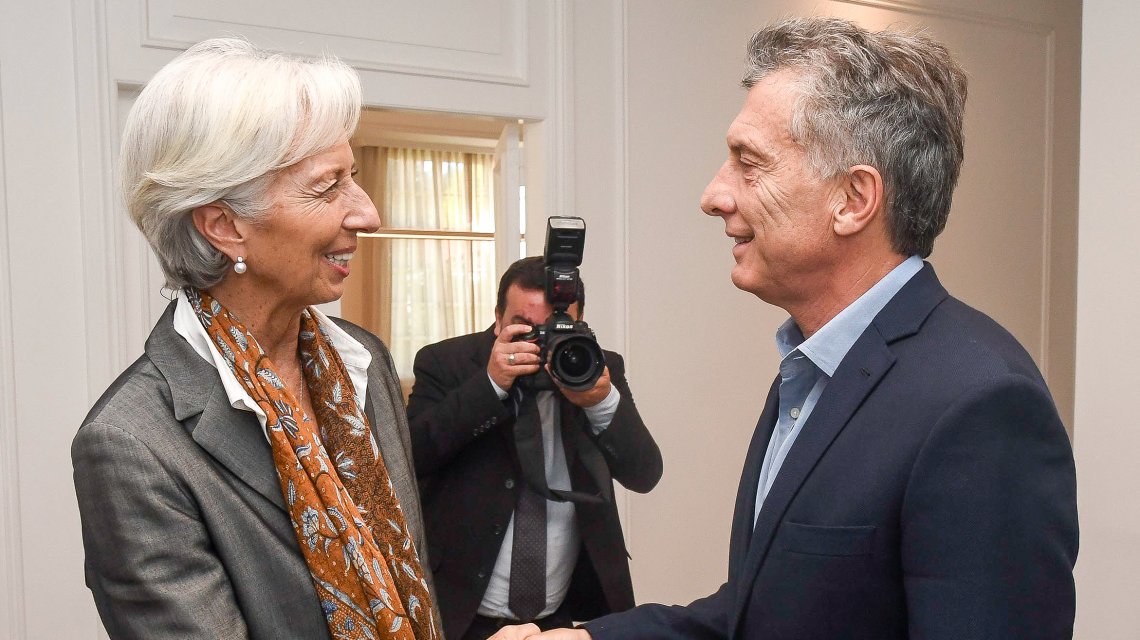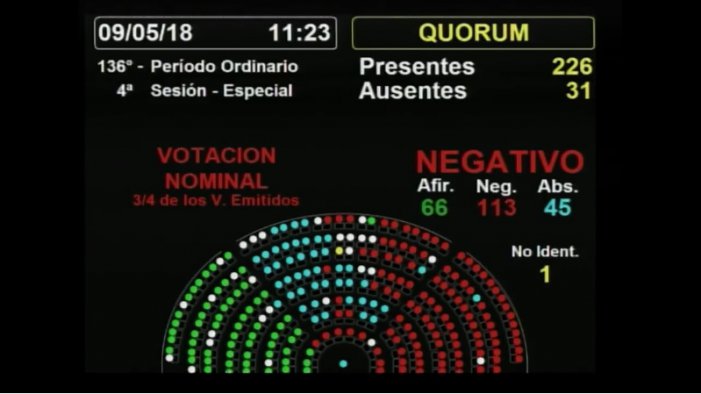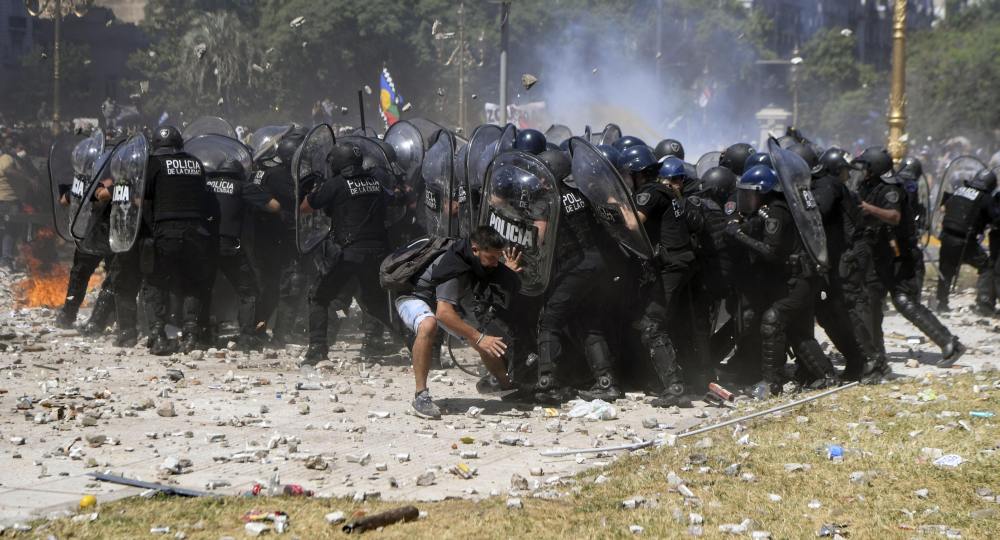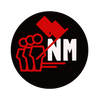The IMF Returns to Argentina
Argentina's conservative government has appealed to the IMF for support. The deeply unpopular move sets the stage for a coming political crisis.

We Tried This Before:
A turbulent week of financial instability pushed the Conservative government of Argentinian President Mauricio Macri to appeal for a $30 billion line of credit from the International Monetary Fund. The Argentine peso was quickly losing ground against the dollar despite massive efforts by the Argentinian Central Bank to intervene. Argentina's overall inflation rate is currently second only to Venezuela in the region.
Macri bet his economic policy and political fortunes on the hope that a gradual austerity program and deregulation of currency exchanges would lead to a surge in foreign investment in the region. Easing the flow of capital however has made it much easier for that investment to be withdrawn in the face of the slightest change in fortunes.

Macri with the director of the IMF, Christine Lagarde
The announcement that the government would seek support from the IMF eased concerns among financial speculators, but has dropped like a bomb among the majority of Argentinians. A preliminary poll showed that 75% of Argentinians are against the measure to seek support from the IMF. Historical memory remains strong around the crisis of 2001, the run on the banks, the economic depression and street battles which led to the neoliberal President De La Rua fleeing the country in a helicopter.
Over the course of the 80s and 90s the IMF intervened in Argentina to force the privatization of state-owned industries - a privatization which saw the enrichment of business sectors at the cost of the quality of service and well-being of the Argentine People. Macri's family profited substantially from the privatization of the post-office while running up huge debts with the state, firing nearly half the workers, and leading it into bankruptcy (it was later re-nationalized).
The intervention of the IMF is likely to continue in this direction and will be utilized by Macri's government to justify ever more intense and brutal austerity measures against Argentinian working people. Real sources of financial excess (corrupt deals with contractors, phantom jobs for political supporters, state subsidies for private corporations) will remain untouched while the government directs ever more brutal attacks on public health, education, technological research and the basic living conditions of the working class and poor.
The Minister of the Interior, Nicolas Dujovne, met with the director of the IMF Christine Lagard and other officials on Thursday to begin talks for a “standby arrangement”. The talks may take as long as 6 weeks to develop a clear proposal, however the SBA always involves a strict set of conditions imposed by the IMF on the government requesting support. Given the desire of the the United States and of IMF officials to see Macri's Right Wing government succeed, there may be the possibility of the arrangement allowing him to continue with a gradual, but accelerated implementation of austerity. However having entered into the path of negotiations with the IMF it is likely to be presented as the only option for Argentina, creating a situation of dependency in which rejection of even harsh terms is to be presented as politically and economically untenable.
While most Argentinians prepare for the possibility of brutal new austerity, the Trump White House signalled it's support for Macri declaring that "President Macri has the right vision for the Argentine economy and has made important strides toward modernizing the country’s economic policy"
The Center Falls, The Left Prepares
Although the return of IMF intervention is widely repudiated by the majority of Argentinians, much of the supposed opposition to Macri has refused to take a firm stand. The former presidential candidate of the Left and Workers Front (FIT), Nicolas Del Cano, put forward a proposal for the Congress to reject the agreement with the IMF. Macri's coalition, Cambiemos, does not have a majority and the defeat of the motion was only possible thanks to the votes and abstentions of sectors of the supposed opposition. As he has done over the course of his government, Macri rules with the tacit support of wide sectors of the Peronist opposition.

Scene from the vote in Congress over whether to reject the IMF
It does remain significant that sections of the opposition were willing to vote in favor of a proposal coming from the far-left. However for opposition sectors which remain tied to the policies of former President Cristina Kirchner, it is unlikely that their opposition will escalate beyond verbal condemnation. The strategy of the center-left remains allowing the government to take potentially unpopular austerity measures to restore capitalist profitability and than hopefully reclaim power in the 2019 elections. Let the right do it's dirty work and pass out a few progressive reforms afterwards.
The real opposition, as it was in the popular uprising of 2001, will come from the streets. The first substantial political blow delivered against Macri's government came this past December when a massive protest against cuts to retiree pensions saw street battles which forced back the police and nearly halted discussions in the congress. Brutal police repression dispersing the protesters than provoked a "Panuelazo", neighborhood protests across the capital of Buenos Aires with people coming out banging pots and pans to show their discontent with the government. While the unpopular reform passed, it came at a tremendous political cost for Macri's government. Planned reforms to labor laws were delayed and the government was forced to slow the pace of it's austerity measures.

Argentinian police retreat under a hail of marble chunks this past December
The current crisis is in part a product of this slowed pace and the resulting lack of faith by financial speculators in the ability of Macri to double-down on austerity measures. The IMF appears to be preparing to demand significant concessions and Macri's government will have few options but to attempt to enforce deeply unpopular economic attacks on the working class and popular sectors. The Right-wing's current domination across the key economies of South America is a fragile balance. In Argentina it has depended upon a gradualist approach that is becoming increasingly unsustainable. In Brazil Temer's world-historic levels of unpopularity is a poor foundation for economic reform.
Argentina has the advantage of comparatively large, disciplined left wing organizations. Their intervention in the protests and street battles of this past December was essential and their activity is the key to defeating the coming wave of austerity. The region's center-left has proven unwilling to seriously struggle even for the most basic democratic guarantees for it's leaders, as the case of Lula's imprisonment shows. Even if they achieved an electoral return to power, they promise little more than more humane management of catastrophic austerity measures. Political hope lies with the myriad Trotskyist groups, Guevarist groups and with the willingness of average workers and students to commit to an unyielding struggle in defense of their future.
